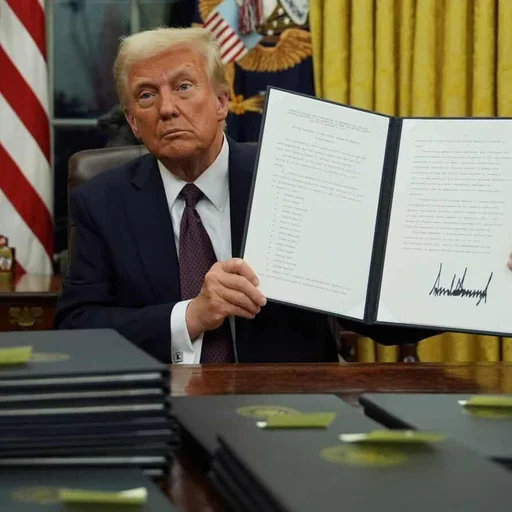President Trump issued an executive order Monday night that seeks to change who is considered a U.S. citizen at birth. This order tells federal agencies to not give citizenship to children born in the United States if their parents are not citizens or lawful permanent residents. Specifically, this would affect children born to parents who are in the country illegally or on temporary visas. The order states that these children will not automatically become U.S. citizens.
This new order challenges how the United States has understood the 14th Amendment for many years. The 14th Amendment has generally been interpreted to mean that almost all people born in the U.S. are citizens. However, the executive order says that to be considered a U.S. citizen at birth, at least one parent must be a U.S. citizen or a lawful permanent resident. This is a major change from current policy and has led to immediate legal challenges.
In response to the executive order, a group of civil rights and immigration organizations quickly filed a lawsuit. This legal challenge argues that the president has overstepped his power and that the executive order goes against the Constitution. These groups argue that the 14th Amendment clearly states that everyone born within the U.S. is granted citizenship. They maintain that this right cannot be changed through an executive order. One of the group’s spokespersons stated that this is a “blatant attack on the Constitution” and vowed to fight the order.
The executive order has created uncertainty around the future of immigration and citizenship in the United States. The order is now facing a legal battle that will determine whether or not it stands. This situation has the potential to greatly impact families and individuals who currently depend on birthright citizenship. The outcome of this legal fight will decide the future of birthright citizenship in the United States. Therefore, this legal case is very important for understanding who is considered a citizen in the U.S.
